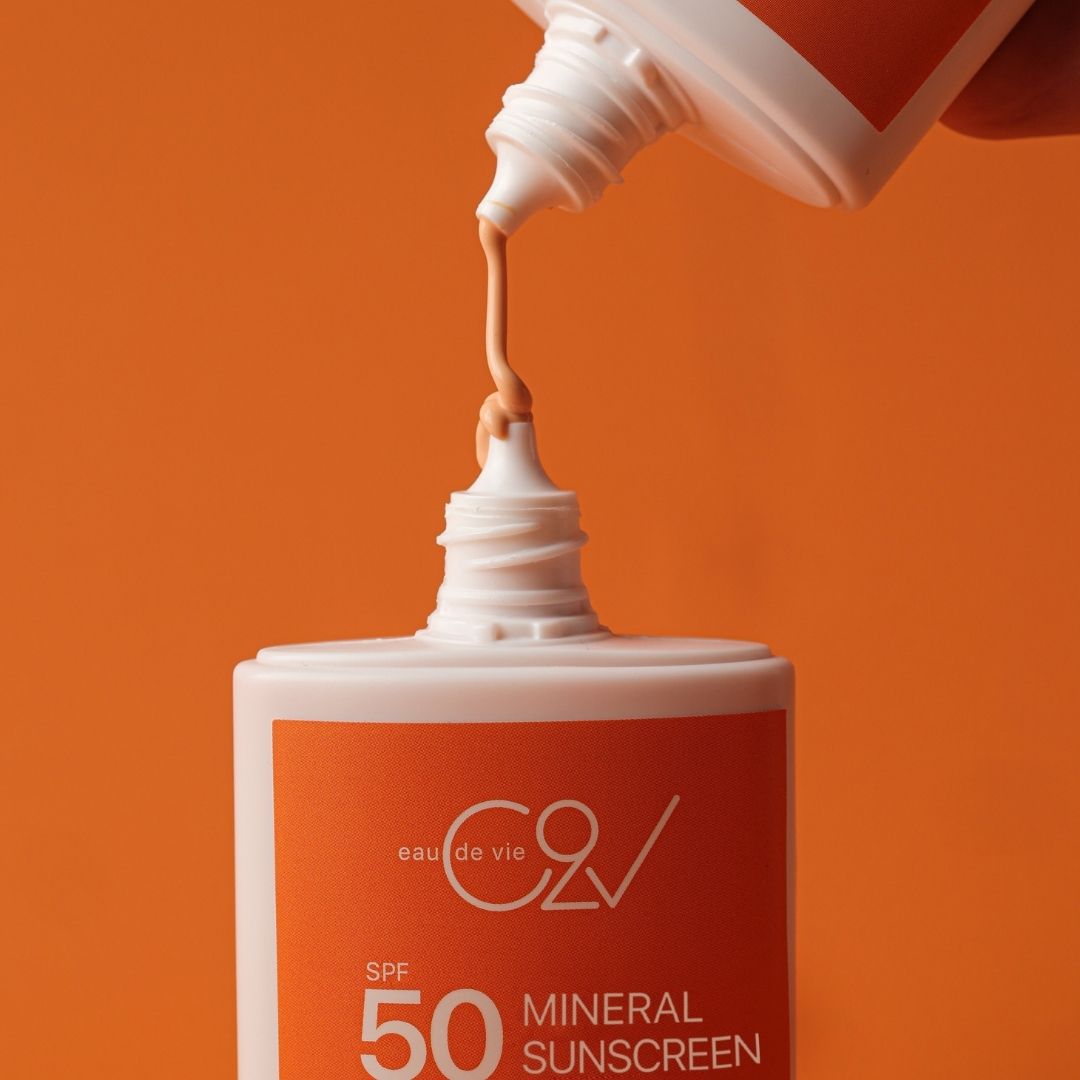
Mineral vs. Synthetic Sunscreen Ingredients
Share
The importance of sunscreen is clear: It's essential to wear sunscreen every day, rain or shine, to safeguard against skin cancer and premature aging. But what if you're not fond of sunscreen due to past issues like breakouts, skin irritation, or an unpleasant feel? Fear not, the solution isn't to forgo sun protection. Dr. Debra Jaliman MD, a board-certified dermatologist, advises using SPF 30 and above daily, even on cloudy days, as UV light can penetrate clouds.
Finding the right sunscreen formula that suits your skin type is key to shielding against the cumulative harm from sun exposure. This may involve some experimentation and understanding the differences between sunscreen ingredients - their properties and how they feel on the skin.

Mineral vs. Synthetic Sunscreen Ingredients:
The choice between mineral and synthetic sunscreen ingredients isn't about effectiveness but personal preference and skin sensitivity. Mineral sunscreens, using titanium dioxide and zinc oxide, work on the skin's surface to absorb and partly scatter the sun's harmful rays. Synthetic sunscreens, with over 30 ingredients, are absorbed into the skin's upper layers, working similarly to mineral ones by deflecting rays and converting UV into heat. Common synthetic ingredients include oxybenzone, octinoxate, octisalate, and avobenzone.
Importantly, there's no inherent superiority of one type over the other; what matters is their protective effect. The suitability for your skin type is what counts.
Choosing the Best Sunscreen: The ideal sunscreen is the one you'll eagerly apply daily. It should have an SPF rating of 30 or higher, offering broad-spectrum protection against both UVA and UVB rays. To make an informed choice, consider how your skin reacts to different ingredients and textures.
Mineral sunscreens:
- Start working immediately but require absorption for maximum effectiveness.
- Pose minimal risk of skin irritation.
- May leave a faint white cast, especially on darker skin tones, but premium ones go on sheer or have a subtle tint.
- Demand liberal application for optimal protection, as they work differently in formulas.
- Remain on the skin's upper layers.
Synthetic sunscreens:
- Start working instantly and require absorption for maximum effectiveness.
- Are typically found in products with lighter textures.
- Are preferred for water-resistant formulas as they remain clear when you sweat or get wet, but reapplication is essential.
- May be less suitable for those with highly sensitive skin.
- Can be absorbed in small, non-harmful amounts by the skin.
Regardless of your choice, it's crucial to use sunscreen year-round. Even when you don't think you're at risk of sunburn, daylight, even through clouds, can age the skin and increase the risk of skin cancer. Surprisingly, UVA rays from the sun can penetrate windows, causing damage that may go unnoticed but is occurring nonetheless.

Eau De Vie Sunscreen:
Our sunscreen is considered hybrid which means the main active ingredient is Zinc Oxide (Mineral Sunscreen Ingredient) and backed up by 2 synthetic ingredients in low concentration. How is this beneficial?
- It offers a broad spectrum protection against UVA and UVB rays.
- Doesn't feel heavy, greasy, or sticky on the skin.
- Suitable for all skin types and tones.
- Does not leave white cast behind.
- Long-lasting protection.
Learn more about Eau De Vie Daily Sunscreen SPF 50.
